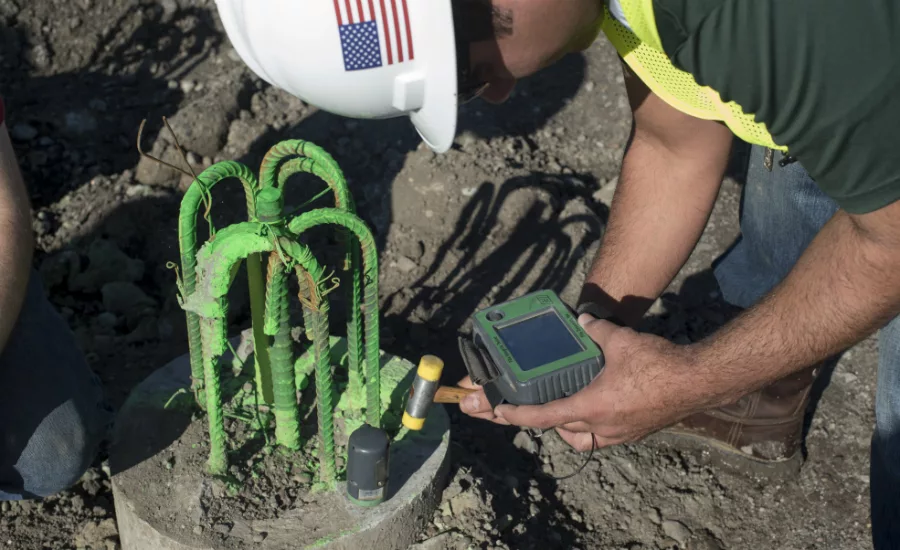New ASTM Integrity Testing Standard Released
Standard D5882 Focuses on Low Strain Impact Integrity Testing

The standard test method for low strain impact integrity testing of deep foundations, D5882, has been revised by ASTM International. The standard covers both the pulse echo and transient response methods of evaluating integrity. Both methods are expedient procedures to investigate the potential existence of major cracks or voids in concrete foundations.
The D5882 standard now encourages considering the soil profile, construction method, site records and results of tests on other foundations at the same site when evaluating data obtained by the methods. Depending on the type of deep foundation tested, it also suggests examining data from concrete placement automated monitoring, concrete cylinder or core strength tests, cross-hole sonic logging (ASTM Standard D6760) and thermal integrity profiling (ASTM Standard D7949).
Pile Dynamics Inc. (PDI) says it wholeheartedly supports the recommendations set forth in the revised standard. PDI manufactures and distributes the Pile Integrity Tester (PIT), an instrument used for pulse echo or transient response integrity testing. PIT is available in several models, with one or two channels of data acquisition. The transient response method requires the models with two channels. The technical specifications of all current PIT models comply with the requirements of the apparatus section of the revised standard.
Pile Dynamics Inc., headquartered in Cleveland, is a largest manufacturer of foundation dynamic testing equipment. A team of civil engineers, electronic engineers, software developers and technicians make the constant development of the Pyle Dynamics line of products possible and highly relevant to the deep foundation industry. To learn more, go to www.pile.com/pdi.
Looking for a reprint of this article?
From high-res PDFs to custom plaques, order your copy today!



